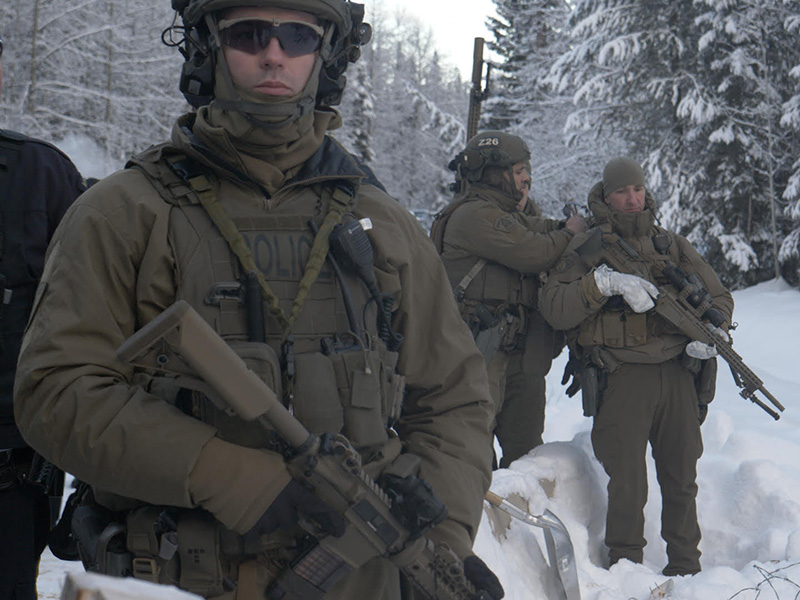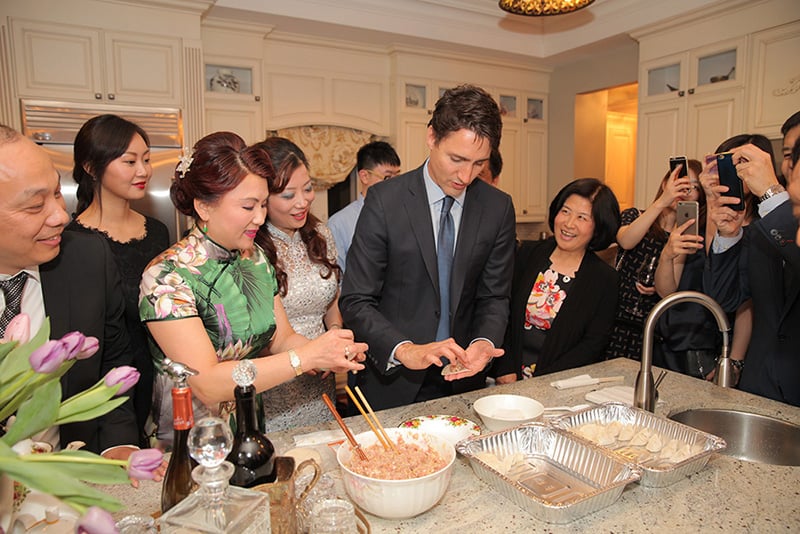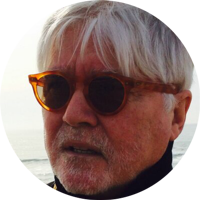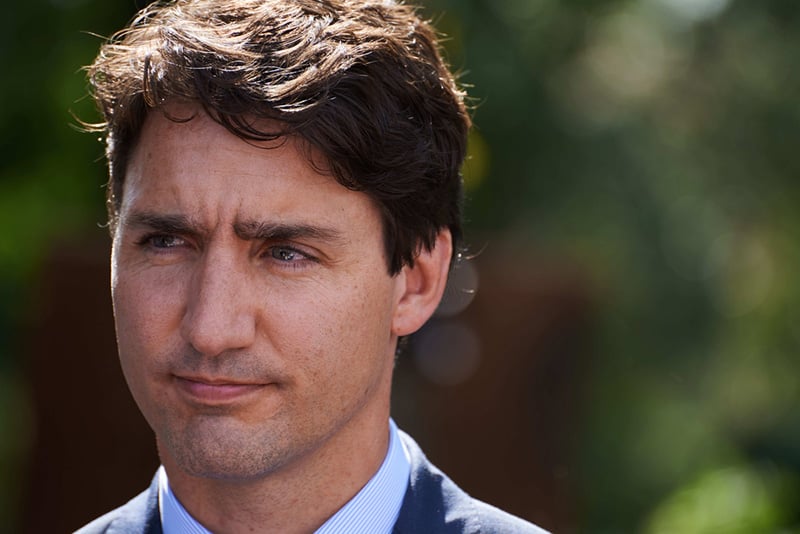[Editor’s note: Michael Harris, one of Canada’s most accomplished political journalists, is now a contributing editor for The Tyee covering national and B.C. issues. Harris’s investigations have sparked four commissions of inquiry. He authored the bestseller 'Party of One: Stephen Harper and Canada’s Radical Makeover' and was a national columnist for iPolitics until last year. We are pleased to have Michael aboard!]
What a difference four years and a villain-free political landscape can make.
With Election 2019 looming, the Shiny Pony is dappled with a little mud; the Cons still haven’t found the batteries for their Andrew Scheer doll; and Jagmeet Singh, though doggedly rumbling down the runway, shows no signs of liftoff.
Voters might need an extra box to check this time around: none of the above.
How different it was in 2015.
Back then the air was electric. Canadians were mobilized. There was an oceanic anxiety on the land that something had gone terribly wrong with government in Canada. It felt like voting would determine the “soul” of the country.
It was a chocolate and vanilla election.
Either embrace Stephen Harper’s aberrant notion of bullyboy democracy, “Me Tarzan, you Nobody,” or show the autocrat the door. Voters opted for the latter. In so doing, they did not so much elect Justin Trudeau as boot out Harper — and worry about the consequences later.
It is now later.
With no Harper to fret over, the spotlight falls squarely on the man who vanquished him. That is how Justin Trudeau came back to political earth. If Pierre Trudeau’s son was an attractive package of limitless possibilities in 2015, four years later he is just another politician with a spotty record to defend.
Spotty, occasionally shabby, but not awful.
The Liberals did transform the political landscape from the days of the Harper hegemony, a decade of deceit, division and destruction.
They brought back a piece of legislation that Harper had completely dumped, the Navigable Waters Protection Act. Now called the Navigation Protection Act, it has been blasted by critics for protecting only one per cent of 31,000 lakes and 2.25 million rivers in Canada.
Under changes to the Fisheries Act, the Liberals earmarked $284.2 million for the protection of fish habitat, which was severely reduced under the Harper government.
Trudeau eased the refugee crisis in the Middle East by bringing more than 25,000 Syrians to Canada.
The government navigated a minefield of sensitive issues to get the assisted dying bill through Parliament.
As advertised in the 2015 campaign, it legalized marijuana.
At the PM’s personal behest, Canada got its first gender-balanced cabinet.
The Senate is no longer pickled in partisanship — thanks to Trudeau’s ingenious, Constitution-skirting reforms. These days, you apply to be a senator, and the criteria are loftier than how much money you dragged into the back rooms of the ruling party.
There is a national carbon tax — provided it survives court challenges from grumpy and myopic provinces like Ontario.
Even the press is wanted on the voyage again, sort of.
The trouble isn’t that the Liberals haven’t done anything.
It is that they have broken faith on so many of the big files. It was those big files that built the coalition that brought the Grits from parliamentary obscurity to majority government, picking up an amazing 148 seats in the process.
The PM boasted that no file meant more to him than the relationship with First Nations. But his promise of a new deal has turned into the familiar request from Ottawa to Indigenous people in Canada: “Trust us, be patient.”
That’s hard to do when the inquiry into missing and murdered Indigenous women and girls looks more like a resignation mill than a public inquiry. Meanwhile, nearly half of the native communities that expected better living conditions by changing prime minsters are still boiling their drinking water.
Pleading for patience is not a winning strategy when you are dealing with people who have been waiting for Canada to honour treaties, settle land claims, and offer some form of self-government for decades.

Nor has arresting matronly protestors and land protectors at the Kinder Morgan site, and in the territory of the Wet’suwet’en in northern British Columbia, done much to convince people like Grand Chief Stewart Phillip that Trudeau’s new age of reconciliation has dawned. The chief’s conclusion, like David Suzuki’s and MP Nathan Cullen’s, is that the PM is a “liar.”
Then there is electoral reform, Trudeau’s “read my lips” moment from 2015. With a single broken promise on ending Canada’s first-past-the-post electoral system, a pledge featured in the government’s first throne speech, another giant bite was taken out of Trudeau’s credibility.
From the point of view of his environmental supporters, no amount of rhetorical tap-dancing in Paris could make up for the fossil-headed decisions on climate matters at home:
Approval for the dubious Site C mega-dam that will flood 80,000 hectares of agricultural land in the Peace River Valley and help power the province’s liquefied natural gas sector;
A green light for LNG Canada’s export facility at Kitimat that critics say will make it next to impossible for B.C. to meet its carbon emission targets for 2030;
Exploration permits for BP Canada to sink exploratory wells in the sensitive waters of the Scotian Basin offshore;* and
More power for Offshore Petroleum Boards in energy decision-making, boards often staffed by former oil industry executives.
The Trudeau government also approved the Kinder Morgan tarsands pipeline, over the objections of British Columbia, in 2016 — a project that was stopped in its tracks by the Federal Court of Appeal in August 2018 and is still awaiting a proper environmental assessment by the National Energy Board.
And the government bought this leaky relic for $4.5 billion, promising a quick sale. To date, there is no private sector buyer in sight, just a lot of whooping it up in Texas as Kinder Morgan counts its loot.
When the construction costs of tripling the pipeline’s capacity are added in, the bill to Canadians will top $10 billion — a huge investment in the past, and definitely not what was on offer in Paris. No wonder the Trudeau government broke another key promise on the environment — its pledge to end fossil fuel subsidies.
While campaigning for office, Trudeau promised three small deficits in the order of $10 billion and a balanced budget for fiscal 2019. Instead, he delivered deficits in each of the first three years, which were double the size of his projections. And according to Finance Minister Bill Morneau, the outlook for fiscal 2019 is not the promised balanced budget, but a projected deficit of $19.1 billion.
As for balancing the budget, Liberals don’t want to talk about that anymore. Now they want to talk about the sprightly economy.
The government’s answer to the bonfire they have made of several key promises is simple: Justin Trudeau’s estimable personal popularity. Canadians like this guy, cool hair, left jab, quirky socks and all. But even that deadliest of political weapons, Trudeau’s likability, has taken some serious hits in his first term.
There was the distinctly bad odour that arose from the “cash-for-access” fundraisers conducted by the Liberals shortly after they took office.
Trudeau himself had said that there should be “no preferential access” to government. But that is exactly what he sold to high rollers in Toronto, Montreal and Vancouver.

For $1,500 bucks, they got to hobnob in secret with the PM and cabinet ministers — and more importantly, lobby them to their heart’s content. Only when Trudeau was outed for this hypocrisy did he belatedly put an end to the sleazy practice.
Trudeau’s image was also tarnished by that complimentary holiday trip to a billionaire’s island. Accepting the Aga Khan’s Christmas freebie was sneaky, ill advised, and not in keeping with a politician who runs as the champion of middle-class values.
It also violated the Conflict of Interest guidelines, as then ethics commissioner Mary Dawson ruled. Dawson wasn’t buying the “friend of the family” defence offered by the PM — before he had to apologize for his gross lack of judgment.
As for Trudeau’s calamitous trip to India, he looked less like a head of state on an official visit to one of the most important countries in the world than Mr. Dress Up Does New Delhi. People who had formerly swooned over Canada’s crown prince of politics were now laughing at his Bollywood diplomacy.
The question is whether there is enough disappointment in Trudeau and anger at the Liberals to cost them their majority, or even government.
However things shake out this October, it is clear that the old Liberal coalition is broken.
First Nations will not be showing up at the polls in record numbers to vote Liberal, as they did in 2015.
New Democrats who supported the Liberals to dump Harper and get electoral reform will be unlikely to trust their vote to Trudeau this time.
A lot of environmentalists, sickened by the gulf between the government’s rhetoric on climate change and its petro-politics, may also be looking for a new champion.
Even centre-right Liberals, put off by the government’s free-spending ways, could decide to shift their vote, or sit this election out.
This doesn’t mean that the Liberals don’t hold a few aces in their political hand. For starters, Trudeau’s political opposition is lamentably weak.
Well over a year after winning the Conservative leadership, Andrew Scheer is hardly an item for Pay-TV. He has been unable to shake the two most commonly held assessments of his leadership — that he is a mere placeholder during the Trudeau era, or a watered down version of Stephen Harper. In poker, that is called a pair of twos.
As for NDP leader Jagmeet Singh, it looks like he could be dealt out of the game altogether. If the current polling numbers hold, or deteriorate further, this could be the election in which the NDP implodes.
The Singh strategy of operating without a seat in the House of Commons has backfired. Singh’s personal approval ratings are at rock bottom, and the party has had uncommonly sluggish fundraising for the coming federal election.
Their performance in recent byelections has been dismal. In some NDP quarters, there is nostalgia for the former leader, Tom Mulcair. Twenty per cent of NDP incumbents are not running.
Nowhere is the NDP more vulnerable than in Quebec, where it currently holds 15 seats — with the 16th, Mulcair’s in Outremont, now vacant. The party was skunked in the June 19 byelection in Chicoutimi-Le Fjord in Quebec, capturing only 8.6 per cent of the vote, compared to 29.7 per cent in the 2015 election. In 2011, the NDP actually won the seat.
It is worth remembering that Quebec elected the Coalition Avenir Quebec in last fall’s provincial election. Francois Legault’s party wants to limit immigration to the province and fire public servants who wear religious symbols in the workplace.
Included in that list of banned religious symbols is the Sikh turban.
Quebecers gave the CAQ a majority government. That is not good news for Canada’s first Sikh national party leader trying to hold on to the NDP base in La Belle province.
Look what voters did to Tom Mulcair in 2015 when he stood up for a woman’s right to wear the niqab at citizenship ceremonies. Quebecers crushed the Orange Crush. The NDP went from 59 of the province’s then 75 seats, to 16. The remnants of that unprecedented victory in 2011 are up for grabs this time around.
Anyway you cut the electoral cake, the Liberals end up with fewer seats in 2019 than they had in the Heave-Steve election of 2015.
They already have all 32 seats in Atlantic Canada, so there is nowhere to go but down. It is also unlikely that they will win every seat in Toronto again, as they did in 2015.
Although the Liberals could scoop as many as 10 seats from the NDP meltdown in Quebec, they could easily lose that many in Doug Ford’s Ontario, where polls have the Liberals and the Conservatives running neck and neck.
Some Liberal seats won in Western Canada in 2015 will be lost over carbon tax anger. The same goes for the few seats Trudeau won in Alberta, as both Premier Rachel Notley and United Conservative Party leader Jason Kenney continue to blast Ottawa for the province’s economic woes in the oil patch.
British Columbia provides the most intriguing possibilities for some genuine October surprises when the votes are counted.
It is hard to see how the Liberals can hold on to all 17 seats from 2015, given the organized displeasure their policies have inspired in both First Nations and environmentalists. It goes well beyond mere disagreement; it is betrayal. It is the kind of emotion that puts feet in the street — and bodies in the voting booth.
It is also a distinct possibility that the leadership malaise and the genuine policy divisions that Rachel Notley has sown in the party could cost the NDP some of its 14 seats in B.C.
Without the Harper factor, it is doubtful that Election 2019 will see a 1.2 million rise in voters under 35 as happened in 2015, though this is the first time the entire millennial cohort will be voting.
The voter turnout will be lower, and when the dust settles, Justin Trudeau will still be prime minister, though probably at the head of a minority government; Andrew Scheer will still be Opposition leader with a few more MPs, and the NDP will be planning another leadership convention.
The potential Cinderella story of 2019?
Depending on who attracts the disaffected progressive vote leaking from both the Liberals and the NDP, Elizabeth May could be getting a belated wedding present sometime on the evening of Oct. 21.
With Green provincial breakthroughs in B.C., Ontario, New Brunswick and P.E.I., May could finally have some parliamentary company in her plucky Party of One.
This story was updated on Jan. 31, 2019 at 9:53 p.m. to correct the location of BP Canada's planned exploratory wells. ![]()
Read more: Federal Politics

















Tyee Commenting Guidelines
Comments that violate guidelines risk being deleted, and violations may result in a temporary or permanent user ban. Maintain the spirit of good conversation to stay in the discussion.
*Please note The Tyee is not a forum for spreading misinformation about COVID-19, denying its existence or minimizing its risk to public health.
Do:
Do not: